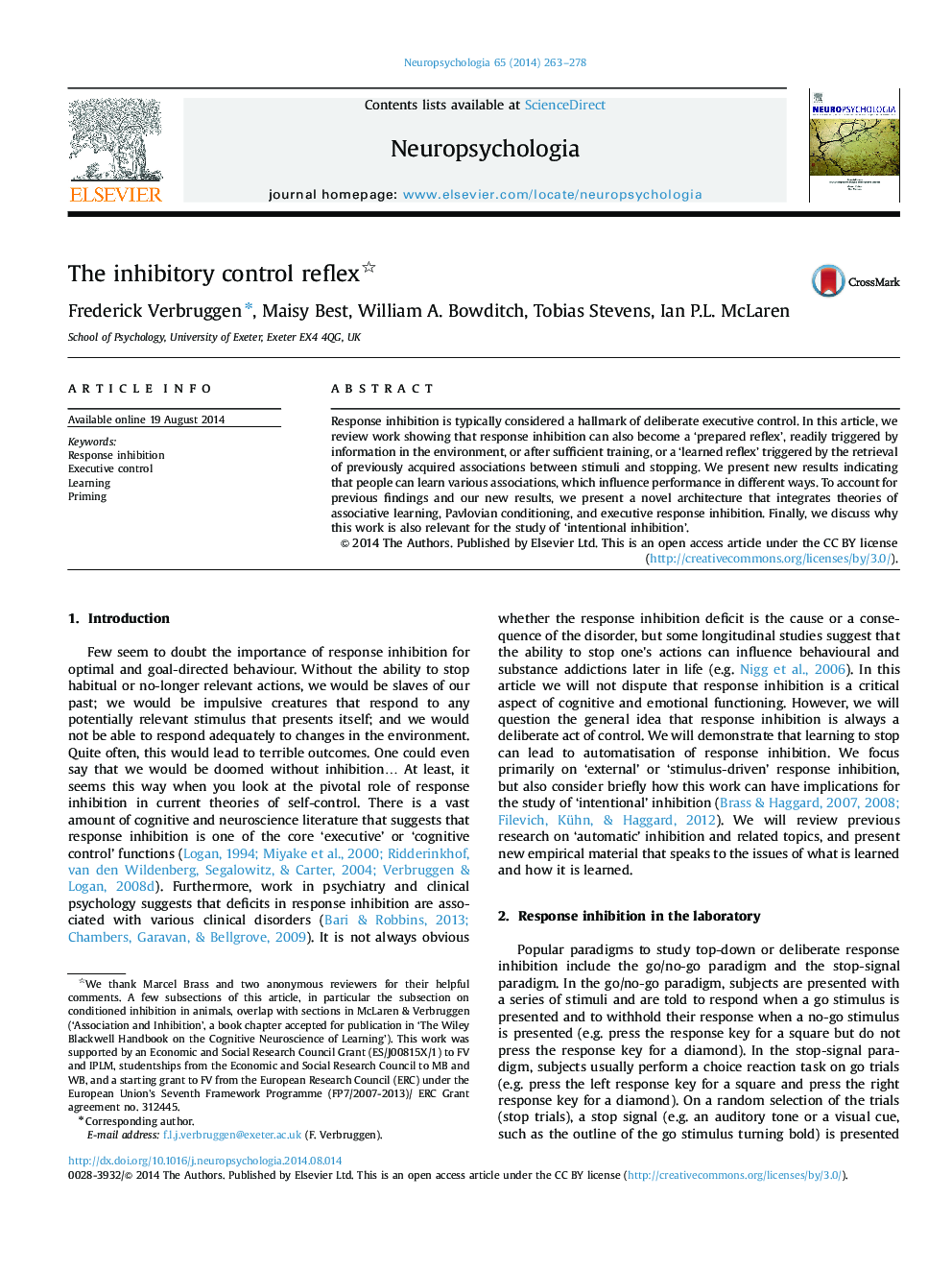| Article ID | Journal | Published Year | Pages | File Type |
|---|---|---|---|---|
| 7320842 | Neuropsychologia | 2014 | 16 Pages |
Abstract
Response inhibition is typically considered a hallmark of deliberate executive control. In this article, we review work showing that response inhibition can also become a 'prepared reflex', readily triggered by information in the environment, or after sufficient training, or a 'learned reflex' triggered by the retrieval of previously acquired associations between stimuli and stopping. We present new results indicating that people can learn various associations, which influence performance in different ways. To account for previous findings and our new results, we present a novel architecture that integrates theories of associative learning, Pavlovian conditioning, and executive response inhibition. Finally, we discuss why this work is also relevant for the study of 'intentional inhibition'.
Related Topics
Life Sciences
Neuroscience
Behavioral Neuroscience
Authors
Frederick Verbruggen, Maisy Best, William A. Bowditch, Tobias Stevens, Ian P.L. McLaren,
